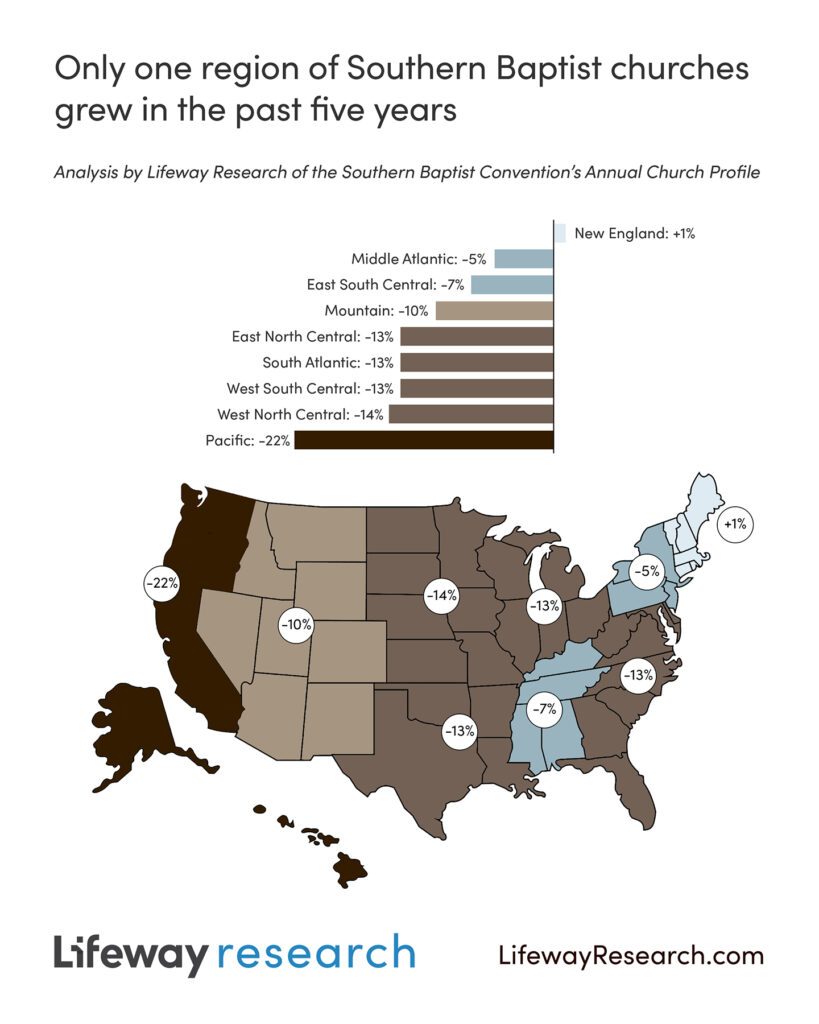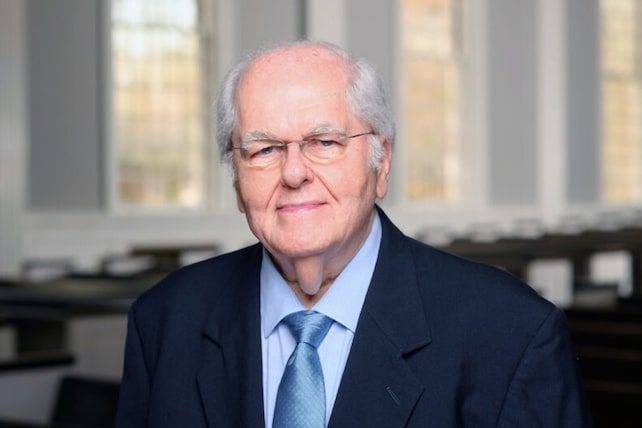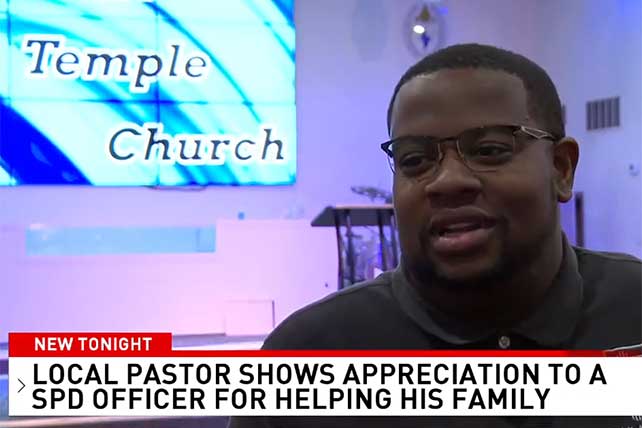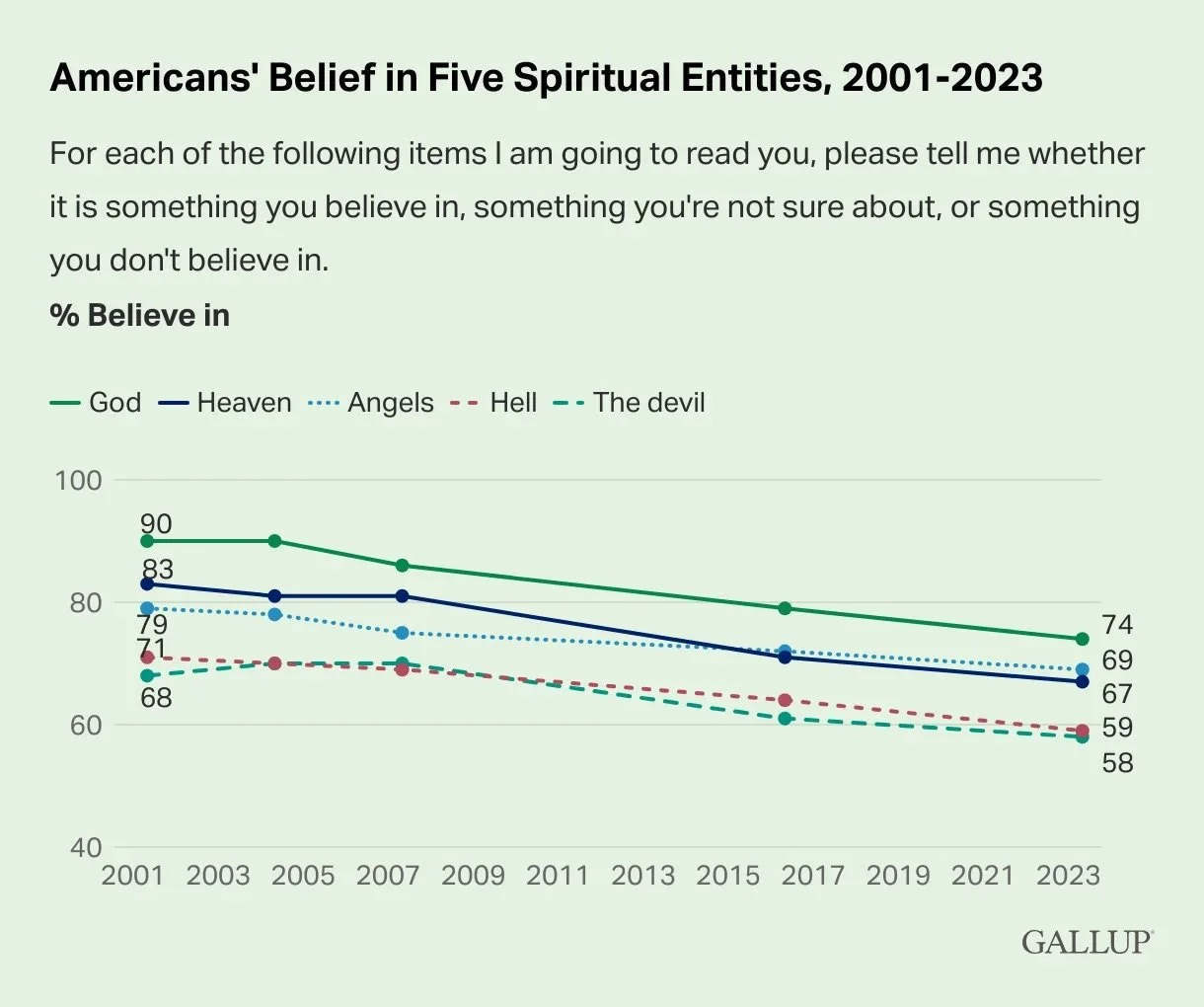A man was given a tour of heaven in a dream. As the tour ended, he noted a particular building was skipped over. The angel warned that he did not want to see that building. This only heightened the man’s curiosity. The angel showed him. It was a building filled with beautifully wrapped presents. When the man asked what these were, the angel answered these were gifts God had prepared for his children that were never claimed in prayer.
If a building in heaven houses unclaimed gifts, many boxes would contain the unwanted gift of wisdom. When facing trials, we pray for provision, healing, strength, protection, intervention, miracles, deliverance, and many other things, besides wisdom.
- Don’t ask how to get out of your trials.
- Ask what to get out of your trials.
Pray for the unclaimed but precious gift of wisdom. James 1:5 says, “If any of you lacks wisdom, let him ask God, who gives generously to all without reproach, and it will be given him.” This verse is a continuation of the previous paragraph. Verses 2-4 says, “Count it all joy, my brothers, when you meet trials of various kinds, for you know that the testing of your faith produces steadfastness. And let steadfastness have its full effect, that you may be perfect and complete, lacking in nothing.
Then is seems James abruptly shifts to the subject of prayer. But the two passages are connected. The link is the word “lack.” Verse 4 says the purpose of girls is to become “perfect and complete, lacking nothing.” Verse 5 says, “If any of you lacks wisdom, let him ask God.”
It is God’s will for you to become a mature Christian that lacks no good thing. But we need to grow up. Our faith is still incomplete. We lack needed virtues for godly living. One of the things we lack is wisdom. God uses trials to expose our need for wisdom.
James 1:5-8 teaches that God freely provides wisdom to face life’s trials to those who come to him in believing prayer. Vance Havner said it well: “If you lack knowledge, go to school. If you lack wisdom, get on your knees!”
How do you access the wisdom you need to face life’s trials?
Ask God for Wisdom.
Verse 5 says, “If anyone of you lacks wisdom, let him ask God, who gives generously to all without reproach, and it will be given him.”
The Problem. Verse 5 begins: “If any of you lacks wisdom…” This conditional statement does not suggest some do not need wisdom. James states the fact in a way that requires each person to examine himself and be humble enough to confess the need for wisdom.
What is wisdom? In scripture, wisdom is not academic, philosophical, or intellectual. Wisdom is not knowledge. Wisdom requires knowledge. But you can have knowledge and not be wise. You can be an “educated fool.” Our world is filled with them. We live in the most skilled, knowledgeable, and advanced generation ever. We also live in the most profane, violent, and hedonistic generation ever. We have knowledge. We lack wisdom.
Wisdom begins with a certain kind of knowledge. Psalms 14:1 says, “The fool says in his heart, ‘There is no God.’” Proverbs 9:10 says, “The fear of the Lord is the beginning of wisdom, and the knowledge of the Holy One is insight.” This knowledge of God comes through God’s self-revelation of himself in scripture. The wisdom of God is found in the word of God.
The Lord Jesus Christ is the the incarnate wisdom of God. Colossians 2:3 says in Christ “are hidden all the treasures of wisdom and knowledge.” When Adan and Eve sinned in the Garden of Eden, they made fools of us all. But God sent his Son into the world to live a righteous life, die on the cross for our sins, and rise from the dead to give us new life. The gospel is able to make you wise for salvation through faith in Christ. But saving faith does not automatically produce perfect wisdom. Jesus is the answer. That does not mean you will not have to face life’s difficult questions. Proverbs 4:7 says, “Get wisdom, and whatever you get, get insight.”
The Prescription. God is the source of wisdom. To receive wisdom to face life’s trials, ask God for it. The prescription for wisdom is simple yet dynamic. You do not need time, experience, or education to be wise. The young, naive, and unlearned can ask God for wisdom.
The prescription is personal: “let him ask God.” You need godly people in your life to intercede for you. But there are things you need from God you will not receive from the intercession of others. You must ask God for yourself. If you need wisdom, you do not have to go to your pastor, visit a counselor, inform your prayer partners, read the experts, or go to your family and friends. The wisdom you need to face life’s trials is only a prayer away.
God gives. After commanding to us ask God for wisdom, James describes the character of God that makes him inclined to grant our request. God is a giving God. It is wrong to view God with clenched fists that must be pried open. God’s arms are outstretched. God’s hands are full, open, and ready to give. God’s pitcher is tilted toward his children to pour out blessings (Matthew 7:11).
God gives generously. The word “generously” means to be simple, single, or sincere. It is that which is pure. James uses the term to say God’s gifts are true gifts. Proverbs 23:1-3 says, “When you sit down to eat with a ruler, observe carefully what is set before you, and put a knife to you throat if you are given to appetite. Do not desires his delicacies, for they are deceptive food.” Sometimes a person’s generosity is not real generosity. That is not the case with God (Romans 11:35). God gives generously, liberally, purely, sincerely, and freely.
God gives generously to all. Divine generosity is nondiscriminatory. God does not play favorites. He is no respecter of persons. In Matthew 20:1-16, Jesus tells a parable about a landowner who kept going to the marketplace to hire workers. He hired workers early in the morning. he hired workers before the end of the workday. But he chose to pay them all the same things. The early birds grumbled against the landowner. The landowner responded, “Don’t I have the right to do what I want with what belongs to me?” Indeed, God has the right to do what he wants. In his sovereign grace, he choose to be generous to all.
God gives generously to all without reproach. You may know people who could help in your time of need. But they are the last people you want to help because of the lecture you would hear when you ask for help. And you would never hear the end of it after they help. God will not chastise you for asking him for wisdom.
- You do not have to worry God is too busy running the world to help you.
- You do not have to worry God may mock you for not knowing how to face life’s trials.
- You do not have to worry God will become irritated because you ask for the same thing.
The Promise. When Solomon became king of Israel, God signed a blank check and gave it to him. In 1 Kings 3:5, God said to Solomon, Ask what I shall give you.” What should you ask for if you had a guarantee that God would grant your request? In 1 Kings 3:9, Solomon asked, “Give your servant an understanding mind to govern your people, that I may discern between good and evil, for who is able to govern this your great people?”
Solomon asked for wisdom. This request so pleased God that he gave Solomon wisdom and threw in wealth, longevity, and success. The wisdom God gave Solomon was not an exclusive gift. God has signed a check and made it out to any believer in Christ who asks for wisdom. All you have to do is endorse it in prayer. Verse 5 says, “If any of you lacks wisdom, let him ask God, who gives generously to all without reproach, and it will be given him.”
James 1:5 promises those who ask God will receive wisdom, not answers. All too often, answers become idols. We are like Job, who demanded to interrogate God about his suffering. When God finally took the witness stand, Job was interrogated with questions and never answered one of Job’s questions. Yet Job emerged with greater wisdom. This is how God words.
Wisdom is not a spiritual navigation system with turn-by-turn directions. It is spiritual alertness to see the potholes in the road, or the guy who darts in front of you, and respond in a way that does not ruin your Christian wisdom, dishonor the Lord, or discourage other believers.
Trust God for Wisdom.
There is a natural and critical progression in the text. Trials demand wisdom. Wisdom demands prayer. Prayer demands faith.
Verse 5 commands us to ask God for wisdom. Verses 6-8 explain how to ask God for wisdom. Verse 5 is an open primes every Christian can claim. Verse 6-8 establish an essential condition for receiving the promise. As you ask God for wisdom, trust God for wisdom.
God responds to the one who prays in faith. Verse 6 says, “But let him ask in faith.” God generously gives wisdom without reproach to all who ask him. But God requires that we ask in faith. This requirement applies to anything you ask. Hebrews 11:6 says, “And without faith it is impossible to please him, for whoever would draw near to God must believe that he exists and that he rewards those who seek him.”
Whatever you ask in prayer must be asked in faith. James specifies that when you pray for wisdom, you must ask in faith. In Mark 11:22-24, Jesus says, “Have faith in God. Truly I say to you, whoever says to this mountain, ‘Be taken up and thrown into the sea,’ and does not doubt in his heart, but believes what what he says will come to pass, it will be done for him. Therefore I tell you, whatever you ask in prayer, believe that you have received it, and it will be yours.”
God rejects the one who prays with doubt. Verse 6 says, “But let him ask in faith, with no doubting.” There is a sense in which double is a friend of faith, not its enemy. Doubt is the ants in the pants of faith. It keeps faith alive, awake, and alert. Yet James commands us to ask in faith with no doubting. It is a prohibition against spiritual indecisiveness that wavers between trust and double. Doubt your doubts, and believe your beliefs!
What God thinks about the doubter. Verse 6 says, “But let him ask min faith, with no doubting, for the one who doubts is like a wave of the sea that tis driven and tossed by the wind.”
This marine analogy is one of many images from nature in James. Growing up with his half-brother Jesus near the Sea of Galilee, James was familiar with storms at sea. Winds drove the waves in one direction, then another. Winds tossed the waves, lifting them high and then crashing them down. It is the kind of storm the disciples experienced that caused them to wake up Jesus and ask, “Teacher, do you not care that we are perishing?” (Mark 4:38) The one who doubts is like a wave of the sea driven and tossed by the wind.
What the doubter thinks about God. The doubter lives with a foolish assumption. He supposed he can pray with doubt and receive an answer to his prayers. She supposes God will grant her request even though she does not trust God for what she asks. The doubter is confused about who God is and how God works. James disabused the doubter of this erroneous supposition. Verse 7 says, “For that person must not suppose that he will receive anything from the lord.” James 1:2, James address his readers as “brothers,” a term of spiritual communion used throughout this letter. James addresses the doubter in verse 6 as “that person,” disassociating himself from the one who prays with doubt.
“For that Person must not suppose he will receive anything from the Lord.” “Anything” is not absolute. Matthew 5:45 says, God “makes his sun rise on the evil and the good, and sends his rain on the just and on the unjust.” This is called “common grace.” It is the favor of God put out one all humanity.
James does not mean God refuses to do absolutely anything for the one who doubts. “Anything” must be understood in the context of prayer. God does many things for doubters. But the doubter should never think he or she will receive anything they ask God for in prayer. James states this as a divine command: “For that person must not suppose that he will receive anything from the Lord.” Doubt receives God’s rejection slip that reads: “Request denied due to insufficient faith.”
Verse 8 gives a final, devastating description of the one who believes but doubts: “he is a double-minded man,” unstable in all his ways.” “Double-minded” is unique to this epistle. Scholars believe James coined the term. It means to have two souls. It is to be two different people. Yet the term does not suggest duplicity or deceitfulness. It describes something far worse: Doubt rooted in divided loyalties.
Deuteronomy 6:4-5 declares, “Hear, O Israel: The Lord our God, the Lord is one. You shall love the Lord your God with all your heart and with all your soul and with all your might.” There is one God. God demands your total devotion. Double-mindedness is the opposite of complete devotion.
James 4:8 says, “Draw near to God, and he will draw near to you. Cleanse your hands, you sinners, and purify your hearts, you double-minded.” The doubled-minded has a sinful heart that needs to be purified to draw near to God. This is how James describes the one who doubts.
- He is a double-minded man.
- He is a fence-straddler.
- He is “Mr. Facing-Both-Ways.”
- He is a walking civil war.
- He trust, but he doubts.
- He hopes for the best but expects the worst.
- He tries to be a friend of the world and God at the same time.
In 1 Kings 18:21, Elijah the prophet confronts the double-minded children of Israel: “How long will you go limping between two different opinions? IF the Lord is God, follow him; but if Baal, then follow him.” How long will you live in double-mindedness? If God is God, trust him. Faith says, yes. Unbelief says, no. Doubt tries to say yes and no at the same time. Like a staggering drunk, the double-minded man takes one stumbling step toward God. But the next step lurches away from God. He is too unable to stand firm in faith.
The double-minded is not just unstable in his prayer life. He is unstable “in all his ways.” A person who cannot trust God cannot be trusted. He is unstable in all his ways. But turn this verse inside out and consider the inverse: “A single-minded man is stable in all his ways.” Proverbs 3:5-6 says, “Trust in the Lord with all your heart, and do not lean on your understanding. In all your ways acknowledge him, and he will make straight your paths.”
This article originally appeared here.




























